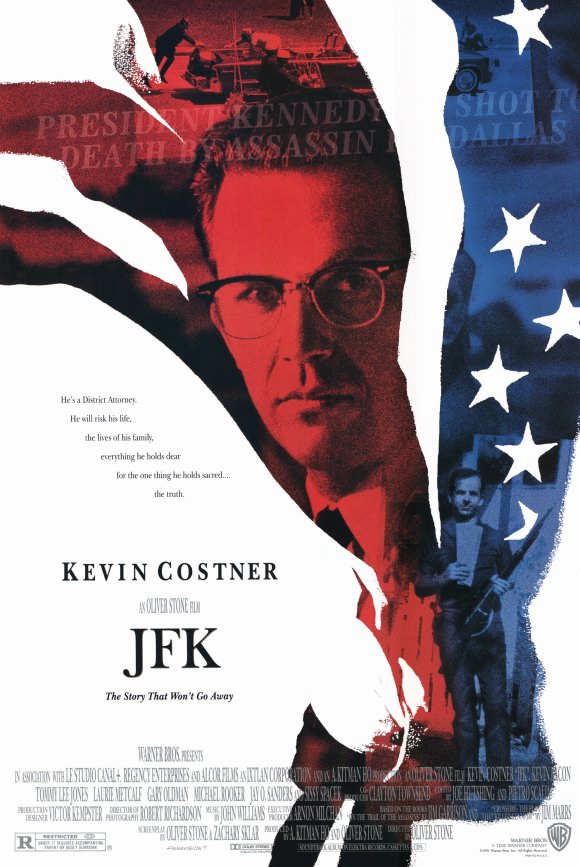An Experience In Time
Back in early 2013 I tried writing another feature-length screenplay, a Political Thriller. The idea had been bouncing in my head since college, growing more and more intricate. It was time to finally spell it all out. Except after about thirty pages I stopped. I knew where the story needed to go, but I knew I’d never be able to tell it in a hundred twenty pages. [ref]Roughly two hours, at a minute per page. [/ref] When working on a script, we’re always told to cut, cut, cut- anything that is the slightest bit extraneous has to go. But if I cut the Political Thriller down to fit into a single feature, it would be… different.
 The initial inspiration came after seeing JFK and A Beautiful Mind, two long-ish, but mainstream movies. At three hours, JFK is about the longest you’ll see in a regular theater that isn’t an experimental art house. Nobody wants to read a spec script that long, but I didn’t think even an extra sixty pages would be enough.
The initial inspiration came after seeing JFK and A Beautiful Mind, two long-ish, but mainstream movies. At three hours, JFK is about the longest you’ll see in a regular theater that isn’t an experimental art house. Nobody wants to read a spec script that long, but I didn’t think even an extra sixty pages would be enough.
Why?
“Film” as an art form often feels like it’s made up of several different kinds of media- literary narratives, theatrical performances, pictorial compositions- but there’s a crucial difference between a movie and its most obvious relative, the still photograph: A photo (or a painting, or a sculpture) is a frozen instant. A movie is an experience in time.
I can spend a few seconds, several minutes, or even an hour with a painting. I control how long my experience is, and the artist has little control over when I receive information in the work, beyond guiding my eye with tricks of composition.[ref] What do you get when you combine an open-ended user experience, like a painting, and an experience in time (plus an electronic medium)? That’s a video game. [/ref]
On the other hand, when I watch a movie (or hear a piece of music, read a book, see a play, etc.), I’m guided along a trajectory that I can’t control, short of stopping in the middle. The way an artist uses my time with their work is extremely important, and the length alone can make a huge difference.
I was reminded of this when I went to see The Martian when it first came out because I had read the book right before. In general, when it comes to adaptations, the book is better, and while the movie version of The Martian was very, very good, it was no exception to this. I think the length of time made a huge difference.
I read it over the course of 5-7 hours, over several days. Not a long novel, but when I watched the movie, it was like reading the book on fast-forward. Events the book could linger on flew by in order to get to the next part of the story. Just getting to the end in a fraction of the time lessened the impact.[ref] This was a big problem for me in the movie version of Harry Potter and The Goblet of Fire: In the book, there’s about a hundred pages of build up between the second task of the Triwizard Tournement and the climactic third task. In the movie, they’re separated by about ten minutes.[/ref]
 It’s the difference between sprinting a hundred meters and running a marathon. The longer a story, the higher potential impact there can be at the end.
It’s the difference between sprinting a hundred meters and running a marathon. The longer a story, the higher potential impact there can be at the end.
This isn’t to say that longer stories are better- they can go horribly awry in the wrong hands. I’ve seen two-hour movies that felt like four.
I can explain everything you need to know about the Political Thriller in a very dense five to ten minutes. But that’s not how it’s meant to be experienced. There’s a futuristic world that needs to be built up. There are themes and ideas that must be returned to in different variations.
The protagonists must dig through a wealth of information and loose ends so that when they finally figure out What’s Going On, it’s not just the twist that comes on page 95, it’s world shattering.
So I wrote out the Political Thriller as a five episode miniseries.[ref] Why five episodes? Because Five Acts! [/ref] It’s about three hundred pages, which is the bare minimum I think the story needs. I might find some excerpts to post on the Media page, but there are still some macroscopic changes I think I want to make.
Commercially, it might make sense to work it into a television show, which would give me more than twice as much time over the course of a season. T.V. is on going, though- an experience in time that could be several years long.
And that’s a different beast entirely…
